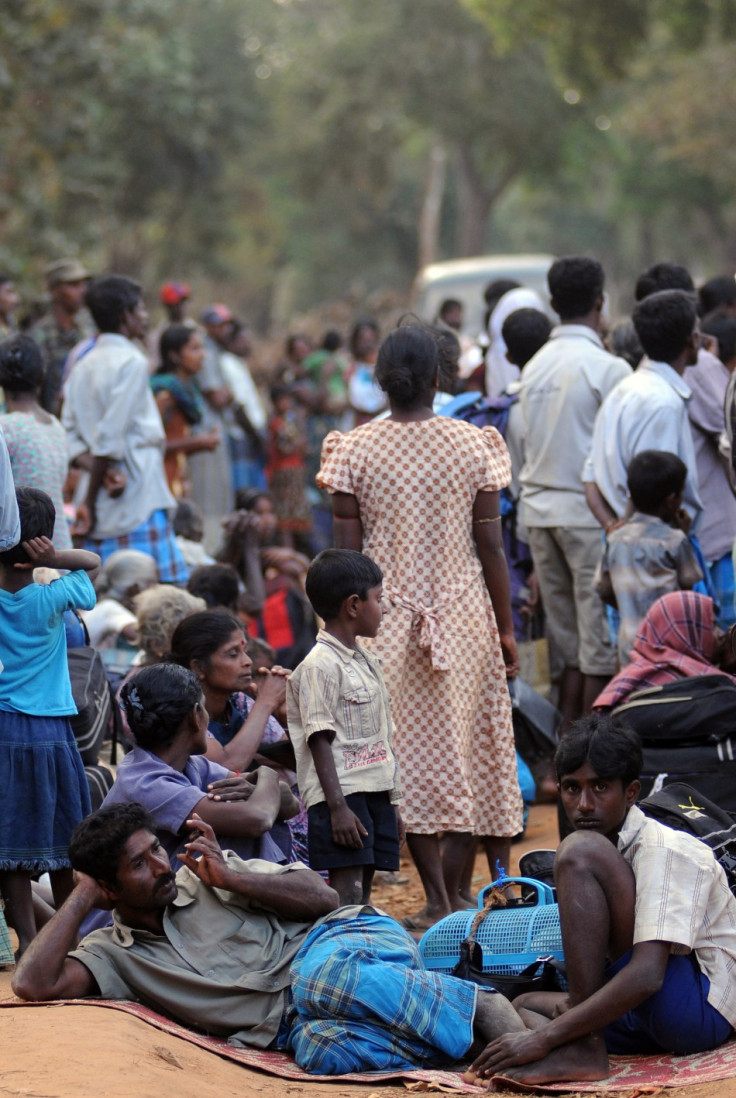Channel 4 "Sri Lanka Killing Fields" could "push Sri Lanka back to war" says High Commission

As Britain renewed calls for Sri Lanka to investigate allegations of war crimes after video footage apparently showing the summary execution of naked and bound prisoners was broadcast on UK television, in the documentary SriLanka's Killing Fields, the Sri Lankan authorities hit back at the documentary.
The film, shown on Channel 4, reportedly shows "trophy videos" taken on mobile phones by Sri Lankan soldiers taking part in the military operation in 2009 to crush the Tamil Tiger insurgency and end a 25-year civil war.
The documentary contained extremely violent scenes and included footage of apparent extrajudicial killing of prisoners by government forces, the aftermath of targeted shelling of civilian hospitals and the bodies of female Tamil fighters who appear to have been sexually assaulted. The documentary has attracted a high amount of viewers and yesterday British politicians directly called for the island's government and the UN to intervene.
The Sri Lankan government however issued later on in the day a statement warning against the negative consequences that the documentary could have on the island's communities, as the brutal images were more likely to provoke ager rather than make the people work towards reconciliation.
Sri Lanka's civil war ended in 2009, as the Colombo government claimed victory over the insurgents after a bloody military operation that killed thousands of people and displaced many more.
Army and Tamil separatists fought a long conflict involving air raids, roadside blasts, suicide bombings, land and sea battles. The war originally started in 1983 and more than 80 000 people have allegedly died.
International concern was raised about the fate of civilians caught up in the conflict zone during the final stages of the war. More than 250 000 Tamil ended up in refugees camps for months while allegations that the government had ordered the execution of captured or surrendering rebels also surfaced
However after the war ended, and after the UN pulled out of the country in 2008 despite's people and humanitarian organisations warnings that the situation was about to escalate, the international community started to call for an investigation to be launched.
The Channel 4 documentary as put back the debate on the table as speaking at Prime Minister's Questions, David Cameron said the documentary referred "to some very worrying events that are alleged to have taken place".
"The Sri Lankan government does need this to be investigated and the UN needs this to be investigated," the prime minister said.
"We need to make sure we get to the bottom of what happened and that lessons are learned."
Earlier, Foreign Office Minister Alistair Burt said he was "shocked" by the "horrific scenes" in the film and urged the Sri Lankan Government to investigate allegations that war crimes were committed.
"The recent UN Panel of Experts' report, this documentary and previously authenticated Channel 4 footage, constitutes convincing evidence of violations of international humanitarian and human rights law. The whole of the international community will expect the Sri Lankans to give a serious and full response to this evidence," Mr Burt said.
"Since the end of the conflict the UK has called for an independent, thorough and credible investigation of the allegations that war crimes were committed during the hostilities and the UK Government expects to see progress by the end of the year. I reiterated this message to the Sri Lankan Foreign Minister on 14 June," he continued.
"If the Sri Lankan Government does not respond we will support the international community in revisiting all options available to press the Sri Lankan Government to fulfil its obligations.
"Unless this is done, Sri Lanka will not be able to move on, and the prospects for reconciliation between Sri Lanka's communities will be curtailed. It is of the greatest importance that this does not happen" he added.
However while Mr Cameron and Mr Burk reiterated their calls for the Sri Lankan government to investigate allegations of war crimes, the Sri Lankan authorities hit back with a statement criticising and discrediting the Channel 4 documentary, which they said could push the country back to war.
In a statement, Sri Lanka's High Commission in London said: "The government of Sri Lanka categorically denies the allegations that it has deliberately targeted its own civilians."
The military action to end the civil war against the Liberation Tigers of Tamil Eelam (LTTE) was a "humanitarian operation... to rescue its own people from the clutches of an unlawful group of terrorists", said the High Commission, adding that any allegations of abuse should be referred to the Lessons Learnt and Reconciliation Commission set up by the Colombo government.
The High Commission went on: "The government of Sri Lanka is concerned about the distress the images in the Channel 4 film aired without any guarantee of their authenticity might have caused to the viewers, particularly to those belonging to different communities in Sri Lanka.
"This is an exercise which is carried out by a small section of international media at the behest of certain parties with vested interests and it caters only to the interests of separatist forces living outside Sri Lanka, the final objective of which is to push Sri Lanka back to war, by way of lacerating the wounds that the country is attempting to heal.
"The Channel 4 film has the potential to incite hatred amongst different communities in Sri Lanka, including future generations, and thereby adversely affect the on-going national reconciliation process.
"The malicious allegations in the film regarding the conduct of the Sri Lankan army are in striking contrast to the standards maintained by the Sri Lankan army."
© Copyright IBTimes 2025. All rights reserved.





















